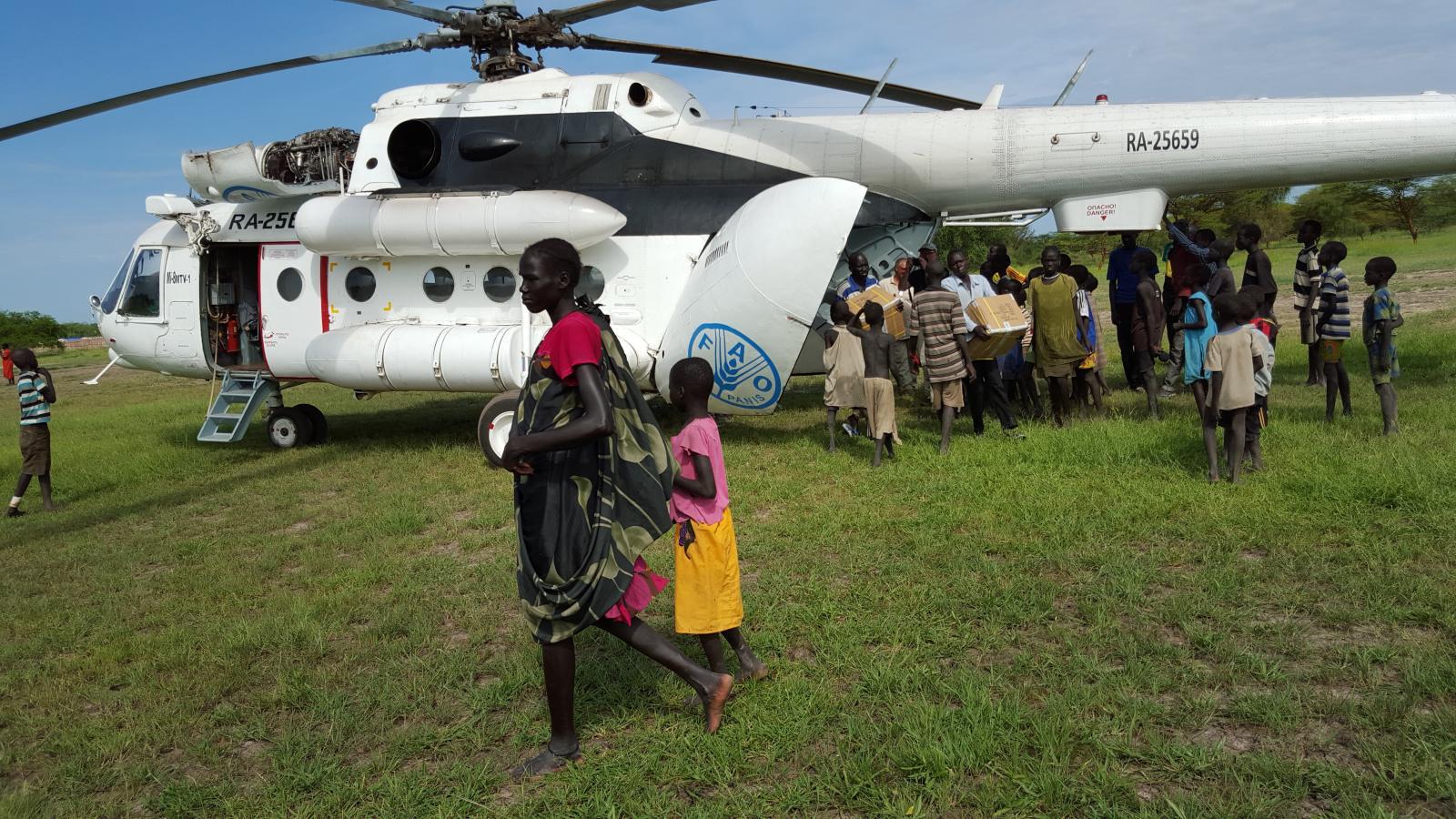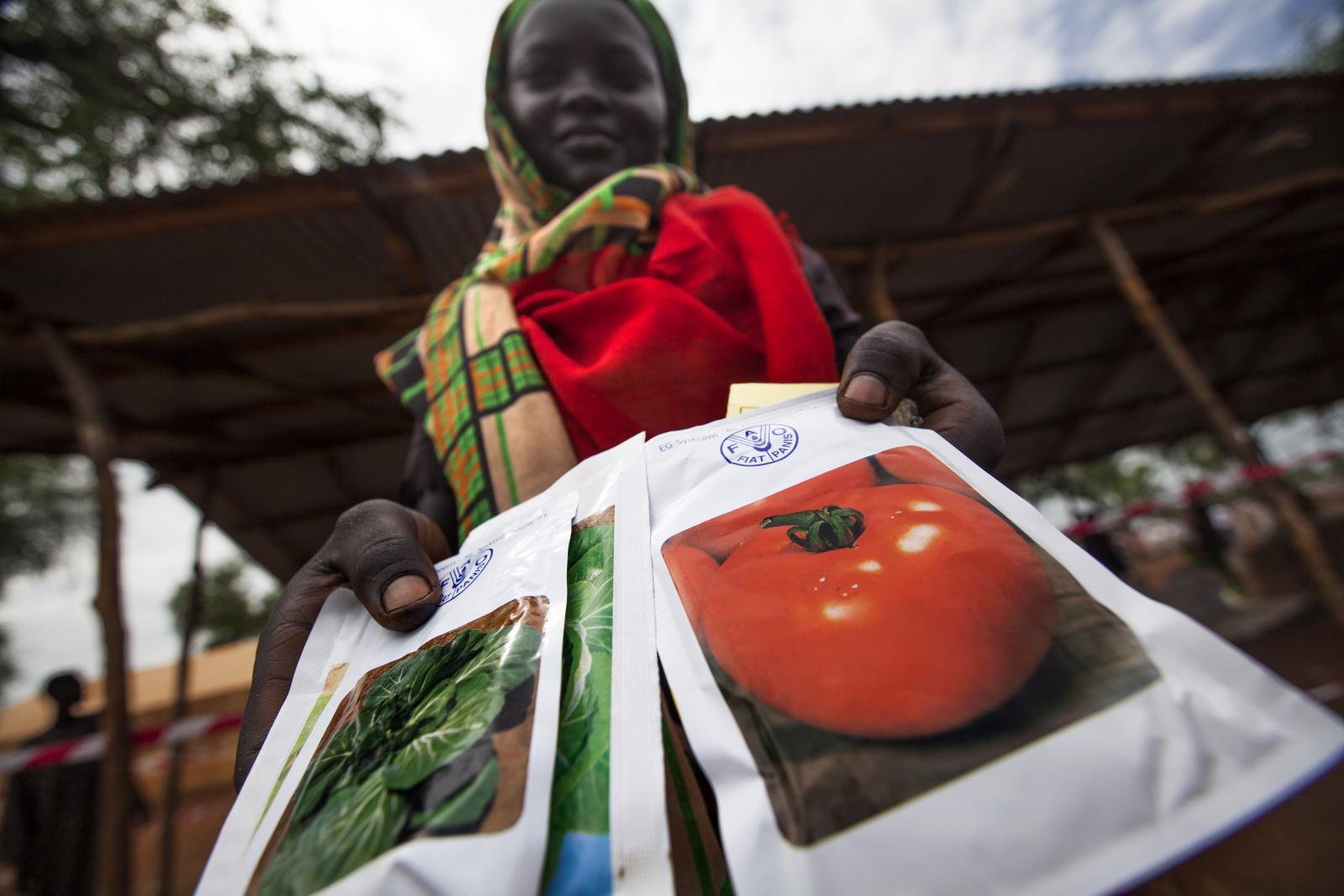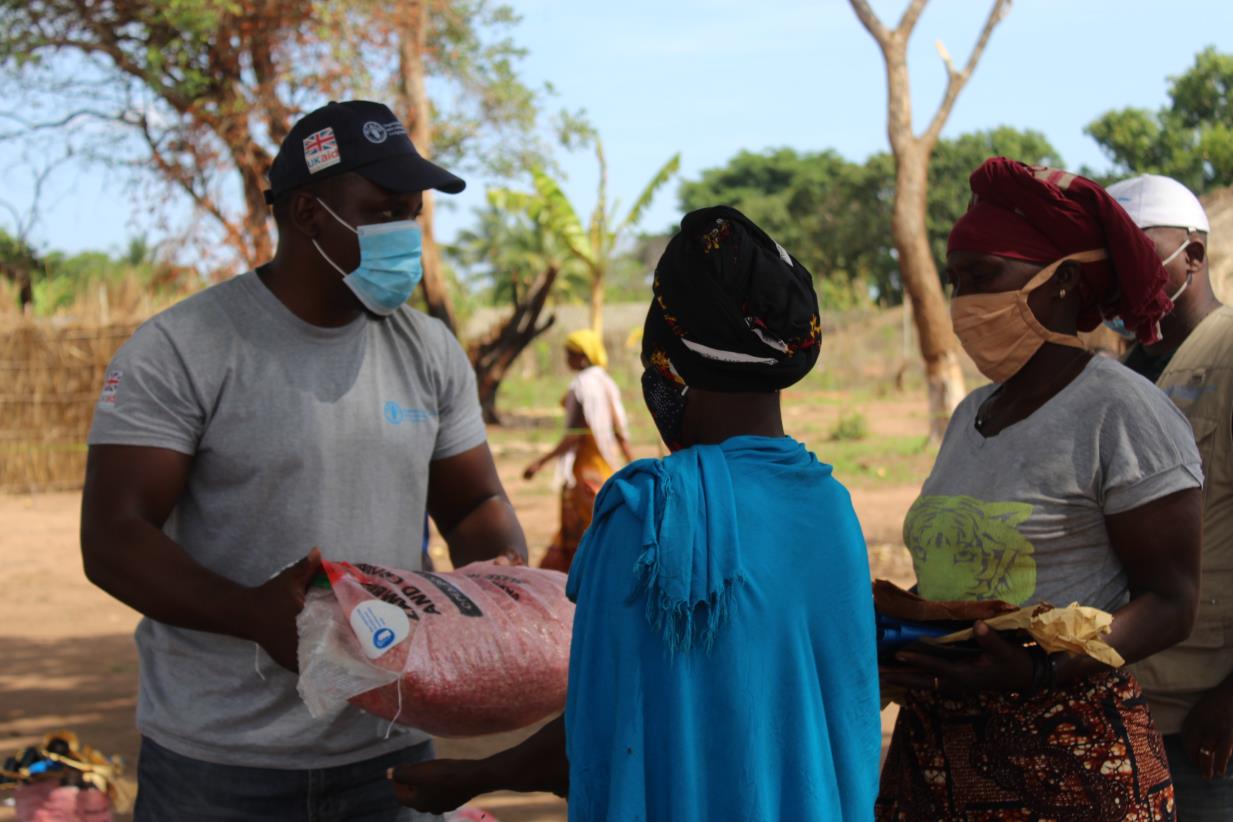
5 ways FAO helps people before, during and after emergencies
Saving livelihoods saves lives
For those whose livelihoods or food needs depend entirely on agriculture and natural resources, disasters can be overwhelming. FAO addresses emergencies in many ways from preparedness and anticipatory action to rebuilding livelihoods and making communities more resilient. ©FAO
04/10/2021
Disasters, like an earthquake or a violent coup d’état, can strike suddenly, or like droughts and floods, develop slowly. These types of emergencies are devastating for people everywhere, but for those whose livelihoods or food needs depend entirely on agriculture and natural resources, these disasters can often be overwhelming. FAO helps communities address emergencies in a variety of ways from anticipatory action and preparedness to rebuilding livelihoods and making communities more resilient.
Here are just five ways FAO helps people before, during and after emergencies:
1. Anticipatory action
Many crises, such as natural disasters, are largely unavoidable, but there is a lot that can be done early on to mitigate them. For example, in July 2020, when experts detected a risk of massive flooding to Bangladeshi communities along the Jamuna River, FAO worked quickly with partners to protect them from the impacts. FAO provided these communities with flood-proof storage drum containers that helped keep their seeds, grains, tools and essentials safe.
In the early days of the floods, when her well was flooded with dirty water, Kokila Akhter used her FAO storage container for another function, too. Kokila was three months pregnant, and her health was more important than ever. “I stored safe water in the drum to drink and for cooking. Drinking safe water helped me to stay healthy during my pregnancy,” she says.


Left/Top: Before flooding peaked in Bangladesh, FAO provided families with storage drums to protect essentials such as seeds and tools. ©FAO; Right/Bottom: Before, during and after emergencies, FAO distributes agricultural kits so that farmers can begin t
2. Investing in local people and economies
Cash transfer, voucher schemes and cash-for-work programmes enable people to identify for themselves what their most pressing needs are and decide which goods and services they wish to purchase in local markets. These programmes can rapidly strengthen the food and nutritional security of vulnerable populations in times of stress.
One female head of household who recently benefitted from such FAO support in Afghanistan, says this helped her get by during the tough times provoked by the COVID-19 pandemic.
“Our problem is that we can’t afford food or other essential goods. The cash given by FAO was used to purchase rice and school stationery for my grandchildren,” she explains.
So far in 2021, FAO has supported some 200 000 highly vulnerable households in Afghanistan with cash transfers and cash-for-work schemes.
3. Helping people to provide for themselves
Often in crises or natural disasters, people lose their land, livestock, farming equipment or other assets, making it difficult for them to restart their livelihoods.
Before, during and after an emergency, FAO distributes agricultural kits so that farmers can begin to grow food again and regain an income. FAO also provides vaccines or other veterinary services to safeguard livestock, another important part of many people’s livelihoods.
When destructive floods and swarms of ravenous desert locusts hit Somalia last year, FAO stepped in to get people back on their feet.
Farmers like Iraado Amir Omar not only received cash support from FAO to meet their immediate needs but were also provided with seeds and tools to resume agricultural production and sustain their farming over the long-term.
“The seeds arrived when we needed them the most. I do not have money to buy seeds, but at least I can plant them now,” says Iraado.
“The help that FAO gave us is very important because our lives depend on the land,” her neighbor Ali Mahamud Rubaax adds. “I hope in the future that these seeds that I am planting will change my life and the lives of my family members.”
4. Developing resilient livelihoods
People with resilient livelihoods are better able to prevent and reduce the impact of climate change and disasters on their lives.
FAO works in countries and regions around the world to assess the impacts of climate change and offers guidance on climate-smart agriculture techniques. By using different varieties of seeds, better fishing nets or crop rotation techniques, FAO is helping people make their livelihoods more efficient now as well as sustainable for the future.
One example is in Central America’s drought-plagued “dry corridor” where FAO is supporting vulnerable farming families to improve their water management strategies.

When conflict or disasters uproot populations, FAO helps to support both host communities and the displaced to increase food production and generate economic opportunities from which all can benefit. ©FAO/Telcínia Nhantumbo
5. Supporting displaced communities
When vulnerable families are forced from their homes due to conflict or disasters, they often temporarily settle in other communities or camps. Sometimes, these host communities themselves area already struggling with resources. As these new arrivals seek sources of income and food, it can create a strain with the communities in which they have sought haven. To support both host communities and the displaced, FAO implements projects to increase food production and generate economic opportunities from which all can benefit.
Following the violence in Cabo Delgado, Mozambique, for instance, FAO is supporting displaced families by providing them with tools and access to credit that they can use to purchase seeds and other supplies. The communities hosting these displaced persons are benefiting from similar support to offset the strain on resources and increase their household food production.
FAO works with key partners such as sister UN agencies, NGOs, governments and the private sector to tackle the many facets of emergencies to ensure that communities are able to better respond and bounce back from shocks, now and in the future.
Related links
Learn more
- Website: FAO in Emergencies
- Story: Think farmers can’t grow food in situations of crisis or disaster? Think again.
- Story: On the ground before, during and after crises

